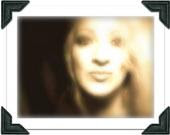You've probably heard the music of Carl Orff in commercials, TV shows, and the Excalibur soundtrack. But did you know that Orff based his composition on a collection of 13th-century songs?
The Carmina Burana (in German, "Lieder aus Beuern") is a collection of plays and songs found in a medieval German manuscript. All were apparently written by wandering poets known as "goliards." The songs and plays were written at the same time, but they have been separated into two different manuscripts: the songs (the Carmina Burana proper), and the six religious plays.
Also known as: the Benediktbeuern manuscript
Origins and History:
The songs and plays in the Carmina Burana were written down sometime in the 13th century, though many of them are probably much older in origin. The work of some of the few known goliards is evident in the style and content of many of the songs. The manuscript was discovered in 1803 at Benediktbeuern, a Benedictine monastery in Bavaria from which the term "burana" is derived The Songs:
The songs, which number more than 1,000, vary widely in style and subject matter and include religious poems, political satires, drinking songs, and both serious and bawdy love songs. They are composed of rhymed lyrics, primarily in Latin with a few in German. Some musical notation was included in the manuscript, but it has been difficult to decipher, and only about 40 melodies have been reconstructed.
The Plays:
The six plays are all in Latin and include the only two complete texts of medieval Passion dramas known to exist today -- one with music and one without. The other plays are an Easter play, a Christmas play, a play depicting Christ's first two appearances to the disciples, and a play of the king of Egypt.
Significance:
The Carmina Burana is the largest and greatest collection of secular lyrics from the Middle Ages. It has proved useful in understanding the goliards, and it has demonstrated that music flourished widely in medieval times beyond the confines of the Church.
Modern Version:
In 1937, the German composer Carl Orff wrote the secular cantata "Carmina Burana," which was based on the medieval poems but did not use the original melodies. Orff's work was very popular in Nazi Germany, and has since been used in numerous TV programs, advertisements and films, most notably John Boorman's Excalibur.
You can listen to MIDI versions of Orff's work at Bot Productions.
Suggested Reading:
Carmina Burana: Cantiones Profane
by Carl Orff and Judith Lynn Sebesta; translated by Jeffrey M. Duban
Thirty Poems from Carmina Burana
by P.G. Walsh
Related Products:
The Carmina BuranaComposed by Carl Orff
Click on to one of the merchant pages for sound samples.
Excalibur
Boorman's Arthurian masterwork is one of the best representations of the legend on film, and utilizes Orff's music in the soundtrack.





No comments:
Post a Comment